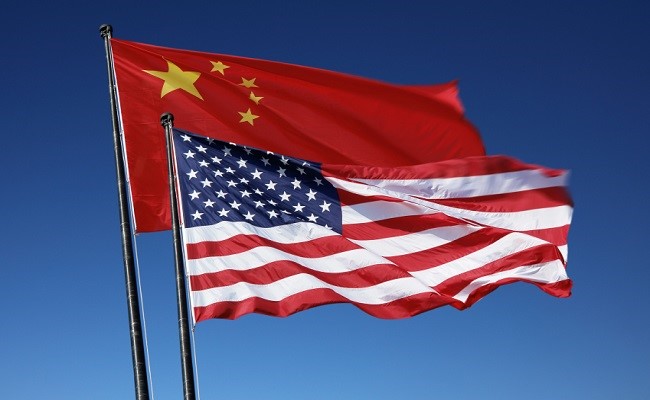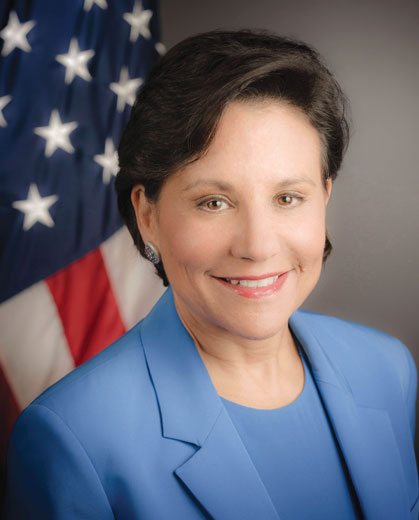
Penny Pritzker, US Secretary of Commerce, discusses the shape of the US-China trade relationship
While tensions can sometimes run high between the world’s two largest economies, business ties between China and the US are stronger than ever. Beyond the huge presence of US companies in China, China has also become a major source of investment in the US, accounting for $12 billion of deals in 2014, up from $10 billion the previous year. The number of Chinese mergers and acquisitions in the US reached an all-time high in 2014 and looks likely to continue to rise in 2015.
In the past, only China’s well-connected state-owned firms were given the necessary approvals and financing to make acquisitions overseas. But now the floodgates appear to be opening to meet the growing demand from private Chinese firms for markets, assets and technologies. Because the US economy is so large and diverse, Chinese companies come to the US seeking a wide variety of things. Some come for the high-value consumer market, while others want to acquire advanced technologies, operating expertise, safe agricultural products, natural resources or diversified investments.
China is working to clear the way for its private companies to make more investments abroad, including loosening registration requirements for investments and providing some of its ample foreign currency reserves to them to make overseas acquisitions. And despite some occasional domestic opposition, for example over national security concerns, the US government is determined to welcome as much of this investment as possible to help maintain momentum in American economic growth and provide high-paying jobs.
As relatively new entrants to the US market, Chinese companies face some significant obstacles. They are still learning how to properly value and negotiate with American companies, where best to locate their investments, and how to navigate the dramatically different institutional and media environment. But the US Department of Commerce is working to help Chinese investors overcome these common obstacles, says US Secretary of Commerce Penny Pritzker, who in April co-led a trade mission to China.
Pritzker spoke with CKGSB Knowledge on the sidelines of SelectUSA, an investment-focused forum that the US government hosted in late March. The forum welcomed delegations from around the world, including a substantial delegation from China. We spoke with Pritzker about the biggest opportunities and challenges in the US-China business relationship, and how the US can help Chinese companies make successful investments in America.
Q. I know from my conversations with Chinese and American companies that there are still some barriers to investment for Chinese companies in terms of finding the right investment target and understanding the investment and legal climate in the US. How would you describe the challenges that still exist, and what are the major initiatives that the US is undertaking to facilitate that investment?

A. Well, first of all, this is not just Chinese companies. A lot of companies say, “How do I start in the United States?” So one of the things we’ve done is we’ve created the SelectUSA boot camp where we teach companies here’s how you begin, here’s how you meet people, here’s the landscape. We’ve also created a custom mapping tool, so if you’re a company, and you’re coming here to the United States, and you want to understand where is a certain kind of supply chain, what kind of infrastructure exists, where is the skilled workforce, we have this cluster mapping tool, and we’re continuing to evolve that.
So how to start is one issue, the second issue is visas. So… in November (2014), President Obama and President Xi announced that we’re expanding the visa with China to 10 years for travel and business, and the student visa to five years. So that makes just the whole process of doing business easier with China. Also, we’ve announced at the summit the expansion of the L1B visa.
This is not just China [specific], but many companies have said to us, look we have technical experts, we’re investing here in the US, [and] we want to make sure our technical experts can come. An L1B visa is the visa you need to bring for a temporary period of time an expert to help your business. Most of the businesses investing here, a predominant number of their employees are American, which is why we’re encouraging foreign direct investment. And one of the things we’re doing is clarifying the rules to be able to get an L1B visa, so it’s more efficient for companies to get that. Because there’s no cap on the L1B visa, we just want to make the process more efficient for companies. So these are the kinds of things we’re doing to attract not just Chinese businesses.
I met with several CEOs of Chinese companies who are really pleased with their experience here in the United States. That’s not unusual—I have a number of companies that come see me throughout the year from China and they’re really pleased with not just the help they’re getting through SelectUSA but their experience here in the US.
Q. What are the major trends that you’re seeing in Chinese investment in the US? What industries do you see as particularly promising for US-China partnership?
A. They span a number of sectors, everything from real estate to manufacturing to auto parts. So I haven’t seen a particular focus, what I’ve seen is a real growth in interest. We have a large Chinese delegation, but we also have a large delegation from Japan, Taiwan, Canada, Italy, Germany and India. And that’s one of the exciting things… about what we’re doing here at SelectUSA, the real interest and the fact that it’s broad, not just from one country.
Q. I want to ask specifically about China’s growing purchases and reliance on US agricultural products. Do you see that as an area that could be particularly promising?
A. I know from my experience at the US-China Joint Commission on Commerce and Trade (JCCT, an annual bilateral trade dialogue) that there is real interest by our US agricultural industry to sell more of our products in China. Particularly we’d love to have a greater access to sell beef and other products like that. That has been a challenge for our agricultural industry to get that kind of access. I think there is a need and demand, but not always the market access that we need.
Q. In the last few years, surveys by the US-China Business Council have suggested that the atmosphere for US companies doing business in China may be getting more challenging. What are your biggest concerns for US businesses operating in China, and what is the best way to level the playing field?
A. What I would say is that we’ve been through the JCCT process working closely with the Chinese government and Vice Premier Wang Yang on market access challenges, and of course the use of the anti-monopoly law seems to be a challenge that’s being faced. The Chinese are very interested in having a bilateral investment treaty with the US, but in order for that to really come to fruition there are a number of market access challenges they need to address. I think that we’re working with the Chinese on this, they’re desirous of more trade, but there are a number of issues that stand in the way.
Q. You’ve argued that foreign direct investment is key to US growth. But sometimes we see more of a negative or competitive attitude between the US and China, whether at a government or popular level. Are you concerned about those types of frictions in the US-China relationship?
A. No, what I see is, these are not Chinese specific data, but for example, we have 1,000 firms here at SelectUSA from over 70 countries. One hundred seventy of those firms made investments in the US [of] about $13 billion and employing about 32,500 Americans. That’s good for America. And we know that the jobs of American subsidiaries of foreign companies pay $79,000 on average. These are good jobs. So it’s good to have foreign investment in the US. And that’s why Select-
USA is an initiative that is really becoming part of the fabric of the Department of Commerce.
Q. What has the conversation been about the Trans-Pacific Partnership, the upcoming trade deal, so far over the last few days?
A. The conversation is encouraging, because companies want to see both Trade Promotion Authority and the Trans-Pacific Partnership get done. The reason is, and I’ve seen this both here and in the travels I’ve done over the last six weeks, traveling around the United States, talking to companies about trade. What’s really interesting is, small, medium-sized and large companies want to see trade agreements. Since I’ve come into this position, I’ve met with over 1,600 business leaders, and they want to see more trade agreements. Why, you may ask. First of all, there are many companies where their exports are growing, it’s the fastest growing part of their business. They want to be able to access the 95% of consumers that are outside of the US. And what they’re seeing is, if we don’t have a free trade agreement, sometimes their ability to access that market, both the tariff barriers and the non-tariff barriers prevent them from being able to sell their goods.
So whether it’s Electric Mirror that I met with outside of Seattle, they’re a company that manufactures, they sell into the hospitality industry, and they said, “Look, we’re following our customers that are growing all over the world, and some of the markets we’re going into the tariffs are so high, we’re not competitive, and our customers are asking us to move our production to other parts of the world where there are trade agreements.” So getting these free trade agreements done is about our economic growth, it’s about job growth, it’s American competitiveness, and it’s about national security. It’s really important that we get these things done. And whether I’m talking to small, medium-sized or large businesses, I hear uniform support for that.



















